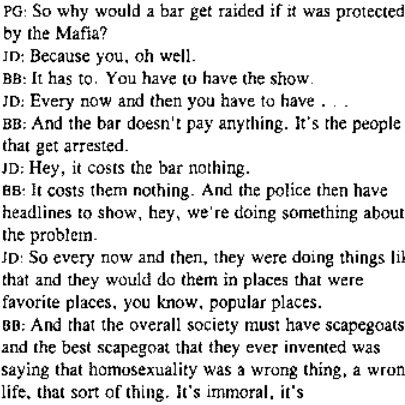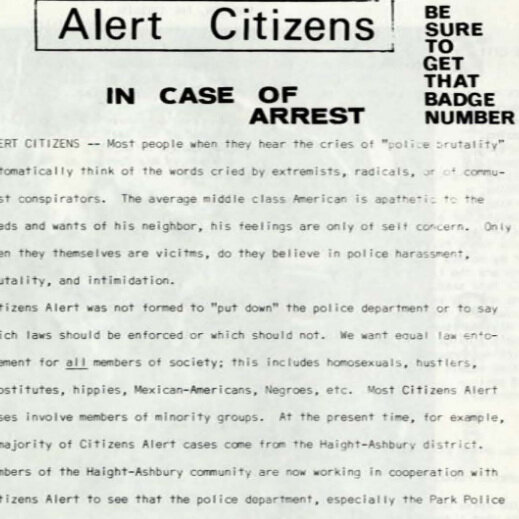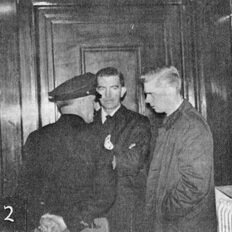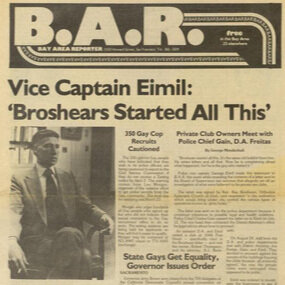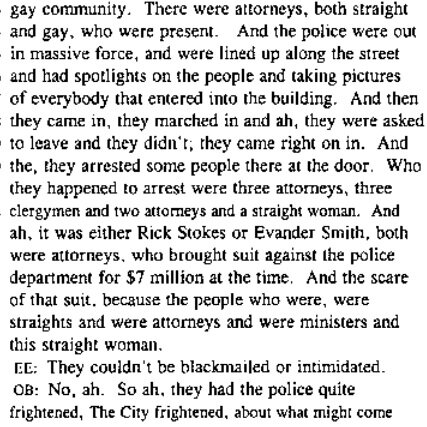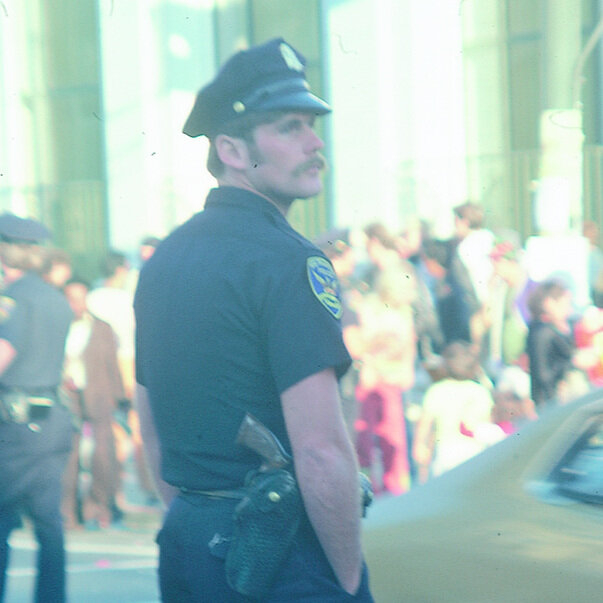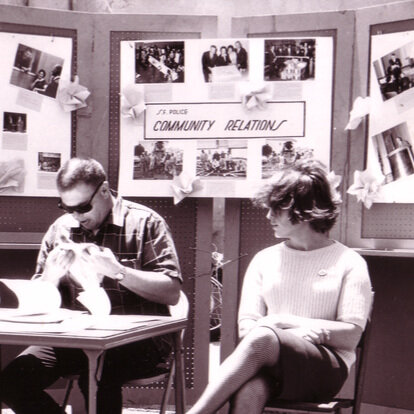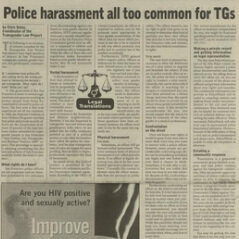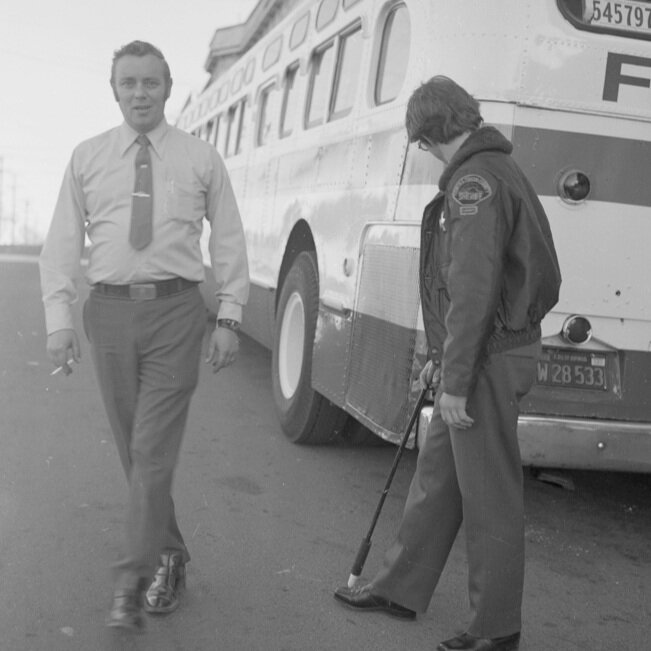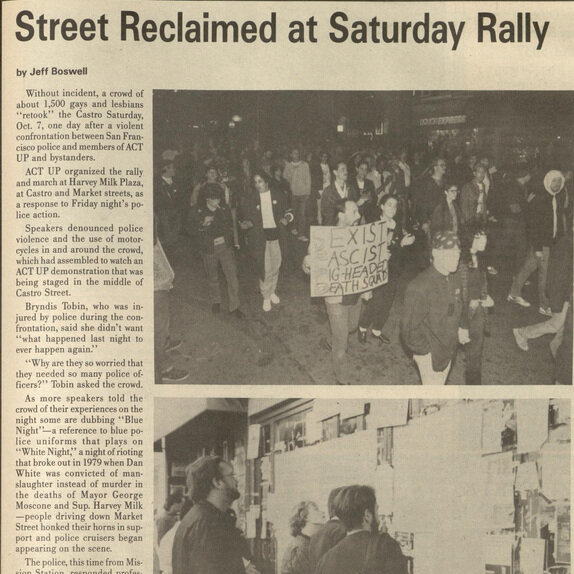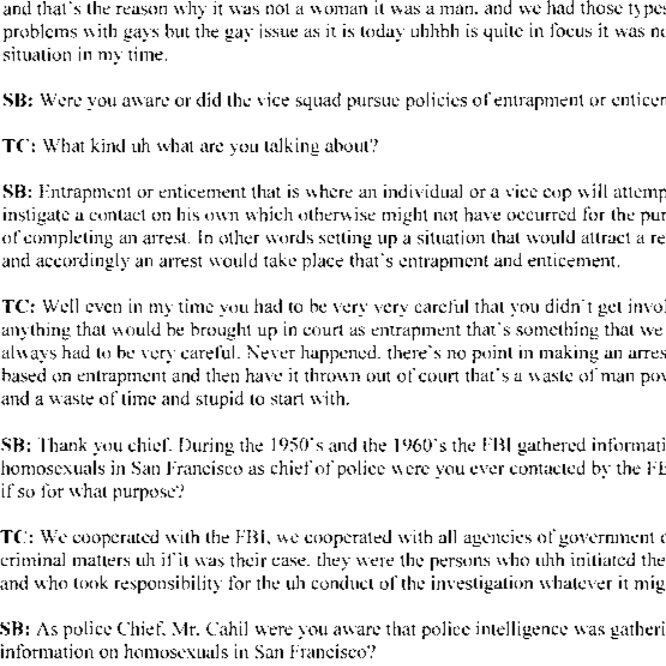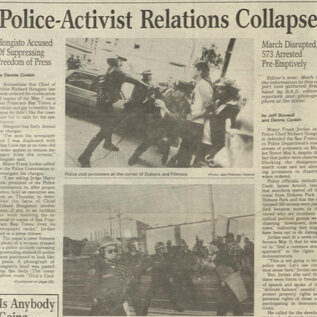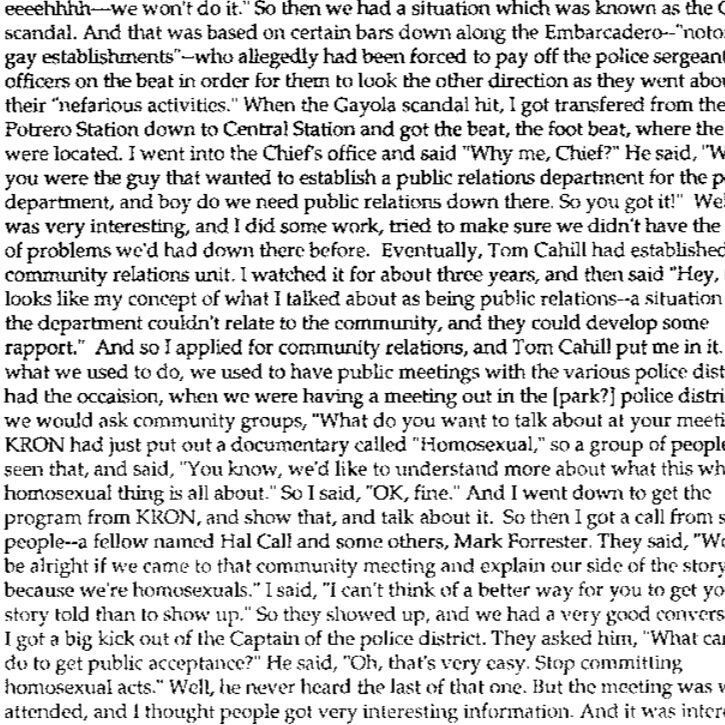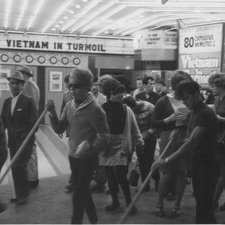Primary Source Set: Policing and resistance
Policing has a fraught relationship with the LGBTQ community. In the 1960s and into the 1970s, open police raids of queer establishments and events were common. For instance, in San Francisco on New Year’s Day in 1965, a police raid of a ball at California Hall led to multiple arrests and subsequent legal challenges from allied religious leaders and queer people. In the 1980s and 1990s, police arrested nonviolent AIDS protesters en masse, and in the 2000s, they continued a longstanding pattern of harassing transgender people. Police violence, as well as a culture of surveillance, has led to widespread mistrust among queer people and spawned movements to prevent police from being present at events such as Pride.
Taking into account this history of police brutality and harassment, some police departments have worked to foster better relationships with the LGBTQ community. LGBTQ people have served as police officers, and since 1962, the San Francisco Police Department has designated a liaison to the queer community and performed various outreach work. This source set aims to capture some of the ways that queer people have dealt with police — protesting them, bringing legal challenges against them, and sometimes working with them.
Selected Source Set
Additional Resources
The Bay Area Reporter has extensive coverage of the queer community’s relationships with police.
The GLBT Historical Society maintains several collections relating to policing, including the papers of community liaison Paul Seidler and activist Victoria Schneider, as well as the Screaming Queens Collection of material about the Compton’s Cafeteria riot and materials from local organization Lesbians Against Police Violence. Contact reference@glbthistory.org for research questions or information about reproductions and permissions.
These primary source sets are just a small sampling of our digitized materials. Additional resources are available in our digital collections. Our extensive archival holdings are searchable through our catalog.



